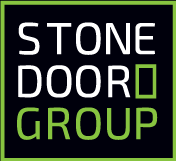The Agile Project Management™ (AgilePM®) certification aims to address the needs of those working in a project-focused environment who want to be Agile. The course…
Certificate: AgilePM®
Duration: 5 Days
Delivery: Blended, Classroom, Virtual Classroom
Accreditor: APMG
Languages: English
What Is Included In AgilePM® Foundation And Practitioner
Course Description
The Agile Project Management™ (AgilePM®) certification aims to address the needs of those working in a project-focused environment who want to be Agile. The course covers an approach to project management that aligns with PRINCE2®. Based on the proven fundamentals within DSDM Atern, the certification provides the ability to deliver Agile Projects in organizations requiring standards, rigour and visibility around project management.
The course will suit project managers who want to add to their knowledge of traditional approaches and who work in a fast-paced, changing environment and are embracing the empowerment provided by agile methods. The qualification is aimed at both practising project managers and agile team members who wish to become Agile Project Managers.
Course Information
Certification: AgilePM®
Duration: 5 Days
Domain: Solution Development and Deployment
Delivery Method: Blended, Classroom, Virtual Classroom
Accreditor: APMG
Available Languages: English
Purchase Options:
Audience
Project Managers
Program Managers
Scrum Masters
PMO members
Executives
Managers
Business Analysts
Senior Technical Leads
Agile Team Members
Learning Objectives
Individuals certified at this level will have demonstrated their understanding of:
Explain how to lay the foundations for successful agile projects
Explain how an agile project is managed
Clarify the different management styles needed for successful agile projects (compared to “traditional” projects)
Provide integration with PRINCE2®.
Course Outline
Day 1
Introduction and domestics
What is Agile? Choosing an appropriate Agile approach
Philosophy, Principles and Project Variables
Preparing for Success
The DSDM Process
Day 2
The People – DSDM Roles and Responsibilities
The DSDM Products
Key Practices – Prioritization and Timeboxing
Planning and Control throughout the Lifecycle
Day 3
Other practices: Facilitated Workshops, Modelling, and Iterative Development
Exam
Day 4
Introductions and domestics
Exercise 1 – Outline the Project
Roles and Responsibilities – the PM view



